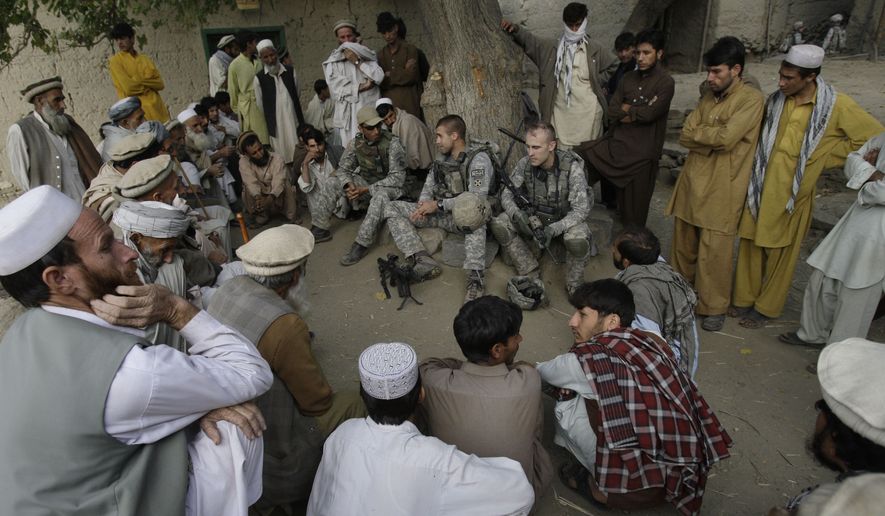Secretary of State Antony Blinken remained largely silent Monday when asked for specifics on plans to evacuate interpreters and other Afghans who supported the U.S. war effort and face deadly retaliation when the troops withdrawal.
At a Capitol Hill hearing, Rep. Michael T. McCaul of Texas pressed Mr. Blinken for details of the plan as the Sept. 11 drawdown deadline approaches, saying he is not confident the U.S. is on track to rescue more than 18,000 Afghans seeking safety in America.
“The military retrograde in Afghanistan could be complete as early as July, according to latest reports,” said Mr. McCaul, the ranking Republican on the Foreign Affairs Committee. “And I’ve been told by your senior officials in your department that there’s no way the special immigrant visas can be processed that quickly. So that means that these people have a bull’s-eye and a target on their back from the moment we leave the country.”
The Washington Times reported last week that the State Department is currently sitting on a backlog of 18,000 applications for special visas to clear the Afghan allies to relocate to the U.S., leaving those collaborators at risk of retaliation by the Taliban.
More than 300 Afghan interpreters and their families were targeted and killed between 2014 and 2020 for the work with the U.S. Many expect the risks to be even greater for these individuals once the U.S. withdraws, said James Miervaldis of No One Left Behind, a group that advocates for interpreters who worked for the U.S. during the Iraq and Afghanistan wars.
The effort to clear the backlog would require a significant improvement in the application processing time for Special Immigrant Visa program maintained by the State Department.
Mr. Miervaldis said the State Department would need to process as many applications in a month as the department processed in a year to meet the withdrawal deadline.
The U.S. has eyed other plans, including an evacuation operation. But advocates for the interpreters said the plan is not a priority for the Biden administration.
“Just last week, Secretary Austin ordered General McKenzie to develop a plan to evacuate these people. But we need a place to temporarily house them while their visas finish processing, which falls within the State Department,” Mr. McCaul said during his questioning, referring to Secretary Lloyd Austin and Gen. Kenneth F. McKenzie Jr. “And most importantly, we need President Biden, as Commander in Chief, to give the order.”
In his response, Mr. Blinken highlighted the challenges the State Department faced in terms of the visa backlog and stated that the department would be adding at least 50 additional personnel by the end of July to expedite processing. He also said he is seeking congressional support for adding 8,000 visas to the program’s cap.
But on specific evacuation planning, Mr. Blinken was initially silent until pressed further by Mr. McCaul.
“Again though, we only have two months before the DOD is completely out of Afghanistan, leaving these people behind,” Mr. McCaul said. “Is the Department considering a process to get them out of the country, while these claims are being processed?”
Mr. Blinken said the department was looking at all options, but still provided few specifics.
“I do not think that the fact that our forces are withdrawing – one, we are not withdrawing, we are staying, the embassy is staying, our programs are staying, we are working to make sure other partners stay, we are building all of that up,” he said.
He also stated that if there is a deterioration in the security situation, it will not necessarily happen overnight. “So, I would not necessarily equate the departure of forces in July, August, or by early September with some kind of immediate deterioration in the situation,” he said.
• Joseph Clark can be reached at jclark@washingtontimes.com.




Please read our comment policy before commenting.